Strictly Personal
Nigeria 2023: The best and worst of times, By Reuben Abati
Published
2 years agoon
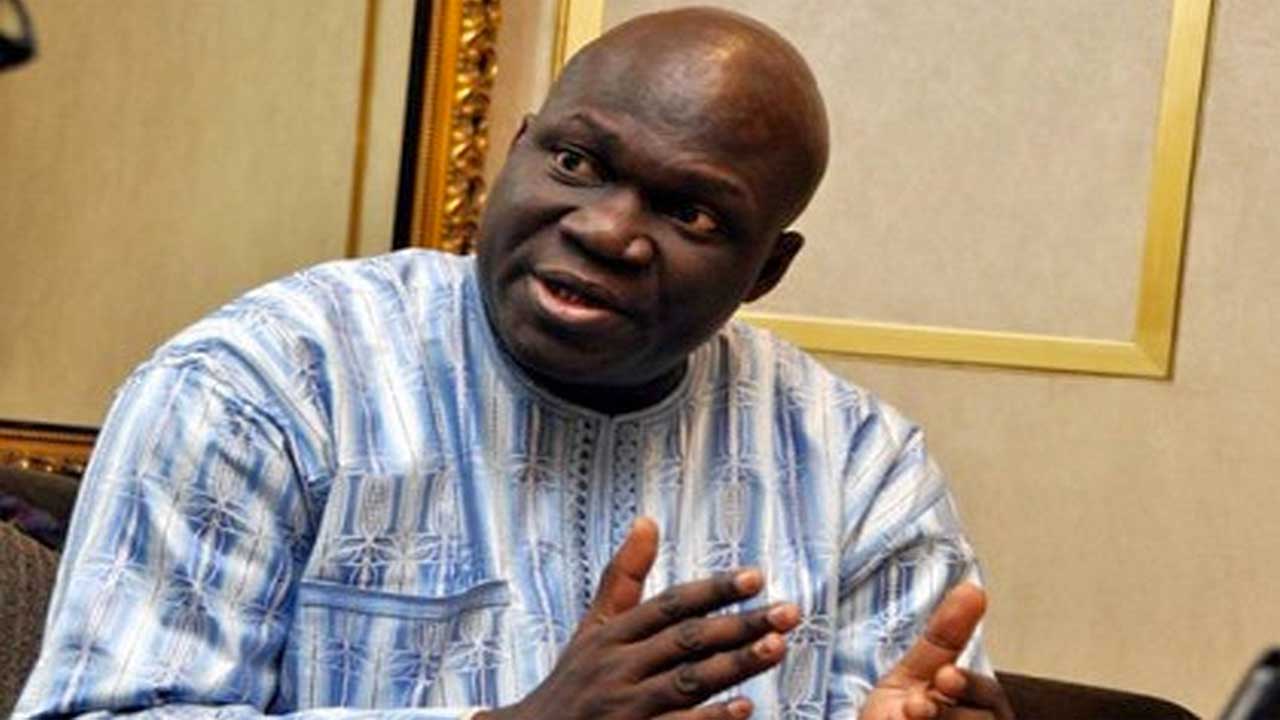
The best way to describe what has happened to Nigeria in the last 72 hours, beginning with the country’s first set of general elections on Saturday, February 25, 2023, is to echo Charles Dickens’ poetic, oxymoronic declaration in his novel ‘A Tale of Two Cities’ (1859) on the radical opposites between Paris and London in the 19th century, that indeed Nigeria now finds itself in truly interesting times, where the best and the worst are on display. Dickens’s novel is one of the best novels ever written.
He told the world famously: “It was the best of times, it was the worst of times, it was the age of foolishness, it was the epoch of incredulity, it was the season of light, it was the season of darkness, it was the spring of hope, it was the winter of despair, we had everything before us, we had nothing before us, we were all going direct to heaven, we were all going direct the other way – in short the period was so far like the present period, that some of its noisiest authorities insisted on its being received, for good or for evil, in the superlative degree of comparison only”.
At the time Charles Dickens wrote ‘A Tale of Two Cities’, this was in the context and season of the French Revolution. Nigeria did not come into being until 1914, when the consort of a colonial Governor-General, Flora Shaw and her man, the fascist Lord Lugard willed and named Nigeria into being, with the dubious imprimatur of the British panjandrum. But the concept of radical opposites of values, expectations and realities, established in Dickens’s classic, in line with the other classical polarities portrayed in world literature from Nietzsche, Thomas Mann to Wole Soyinka and after, in more contemporary times tell simply the story of the given duality of human becoming. And so, it has been with Nigeria’s current electoral process in this first stage. Why has this been the best of times and why at the same time, the worst?
Best of times: Nigeria’s elections in 2023 would be the first time since 2011 that the elections have not been postponed. In other election cycles, previous administrations before now always found an excuse to shift the “goal-post” as Nigerians are wont to say. But this time around, the Independent National Electoral Commission (INEC) promised that it would stay within the same time frame that it announced in line with constitutional provisions. Even when the INEC came under immense pressure from political parties and other stakeholders with regard to other emergent factors over which it had no control, such as the national currency redesign policy which robbed most Nigerians of access to cash during an election season, and nationwide fuel scarcity which made transportation across the country difficult, the electoral body remained focused on its schedule. One factor that played strongly in its favour was the support of the incumbent president, Muhammadu Buhari, who repeatedly told Nigerians that he was committed to a smooth transition of power and that he was looking forward to a due exit from power.
He also promised to provide the electoral body and the security agencies with all the necessary wherewithal to make the election possible. Buhari, a former military head of state (1983 – 1985) ran for the presidential office in 2003, 2007, and 2011, and won the fourth time in 2015. He was re-elected in 2019. Nigeria’s 1999 constitution prescribes only a limit of two terms, that is — a maximum of eight years for an elected president. In Africa, the constitution means nothing to sit presidents, the rule of law is seen as an imposition, and access to power is regarded as a birthright. By choosing to toe the path of the likes of Nelson Mandela, Thabo Mbeki, Goodluck Jonathan, Ellen Johnson-Sirleaf, John Mahama, Ernest Bai Koroma, and Joyce Banda – African leaders who respected the Constitution and moved when it was time to do so, as contrasted with the likes of the old men in Equatorial Guinea (Teodoro Obiang Mbasogo, 80), and Cameroon (Paul Biya, 90) who seem to be following in the footsteps of Hastings Kamuzu Banda of Malawi, Togo’s Gnassingbe Eyadema, and Zimbabwe’s Robert Mugabe. African leaders see themselves as monarchs who must die in office. Whatever may have been his failings, Nigeria’s Muhammadu Buhari as of this moment has not shown any sign of any clumsy attempt to cling to power by foul means. It is almost a widely accepted fact in Nigeria that the president is on his way out, and that all permutations to the contrary are odious. When he leaves eventually on May 29, 2023, it would be said of him that he is a good student of history, learning to avoid the example of certain other African leaders who failed before him, rather choosing the path of honor.
It is also the best of times in Nigeria because Nigeria’s democracy appears to be standing “firm”. Nigeria held its first legislative elections on September 20, 1923, in Calabar, under the 1922 Clifford constitution. Thus, for 100 years, Nigerians have been trooping out to vote in one election or the other, beginning with legislative elections. But in all of those 100 years, the interludes have been legislative somersaults, intrigues between the colonials and the people, as well as war and military interventions. In 1922, Sir Hugh Clifford set up a legislative council with a membership of 46 persons, four of whom were later elected from Lagos (three) and Calabar (one) in 1923. The Clifford constitution introduced the idea of representation, elections, and the formation of political parties. The arrangement under the Clifford constitution survived for only 25 years. Northern Nigeria was not represented in the council, and hence, in 1946, the Clifford Constitution was replaced by the Richards constitution, the objective of which was to increase participation and inclusion. The history of constitutional developments in Nigeria has been better treated by scholars of the subject – Kalu Ezera and others.
Our point is simply that since the return to civilian rule in 1999, and despite all the bickering about the 1999 constitution, what has given hope about the 2023 electoral process in Nigeria has been the belief that a proper legal framework has been emplaced and that the rule of law through the constitution and subsidiary legislation and adherence to same would facilitate good outcomes. Before the 2023 general elections, Nigeria agreed on a new Electoral Act 2022. Since 2000, every effort to make far-reaching changes to the country’s electoral framework ran into troubled waters. Indeed, ahead of the 2019 general elections, the presidency refused to touch any of the amendments proposed by the national legislature. President Buhari rejected the then-proposed bill four times. But in 2022, the situation changed. The national assembly not only passed the Electoral Bill 2022, but it also became a new law. The beauty of it is that it sought to address many of the ills that had plagued the electoral system in Nigeria. Nigerians went into the election therefore full of hope, that with the emphasis on the deployment of technology – the Bio-Modal Voter Accreditation System (BVAS) and the INEC Election Reporting Portal (IREV), all would b
It has also been the best of times because of the determination, the resilience of the people, and their zeal and passion to use this election to make a statement and a difference. In 2015, when President Buhari was proposed to them as the messiah that Nigeria needed, they all went out on the wing of hope and a promise and supported Buhari and his party, the APC. In 2019, they gave both another chance. But the people were short-changed. Buhari and his people could not keep their promise. The trust deficit between the people and the government grew. The government said it was fighting corruption but nothing else worked. The economy collapsed. Inflation and unemployment shot through the roof, not necessarily because of exogenous global trends, but because governance had been poor.
Nigeria’s 2023 general election has turned out to be the most competitive since the return to democratic rule in 1999 but it provides the people with an opportunity to have a voice in how they are governed, especially the youths who in 2020 had turned out en masse to protest against police brutality and poor governance: the #EndSARS, #SoroSoke phenomenon. This sub-text played out in terms of the desperation of the people to get registered for the votes and to get their voter’s cards. Ahead of election day, many slept overnight at voting stations. When voting ended at 2.30 p.m. on voting day and INEC promised that people could stay in the queue for “as long as it talks”, many across the country remained in the queue with their torch lights. In many places, they were disappointed.
But still, it is the best of times because of the people’s belief that democracy could and should move the country forward because, by the time the electoral body began to announce the results, it was clear that the people’s voice had been heard. The results that have been announced so far show the people’s rebellion against the old order, and a yearning for change. The Labour Party and its candidate – Peter Obi may not win the election eventually, but they have both caused a big disruption that could change Nigeria’s electoral map in a substantially significant manner. Labour Party, catalyzed by Peter Obi and his band of revolutionaries, have become the lightning rod for the rude awakening that Nigeria needs. With victories in the South East, in Southern Kaduna, parts of the North Central and the North West, and the displacement of the stranglehold of the All Progressives Congress (APC) and the ruling party candidate, Bola Tinubu, in Lagos, it is clear that something has shifted in Nigerian politics.
In many parts of the country, old and established politicians were voted out. They lost their seats, from Anambra to Ekiti to Plateau and Benue and Cross River. Some of the victims of the people’s rebellion include the governors of Cross Rivers state – Ben Ayade; Benue – Samuel Ortom; Enugu– Ifeanyi Ugwuanyi, and so many others who have now been told that there is a limit to state capture and the excesses of the complicit middle class. This is one of the signals coming out of Nigeria’s 2023 elections. This is a signal that cannot be ignored. This has inspired hope in many Nigerians that the change that they truly want may be possible, and that the status quo can be effectively challenged. Who would ever have thought that the same Labour Party that was regarded as a non-party, without structures, six months ago, could cause so much disruption of the old order, even if it does not win? Who would ever have thought that Peter Obi would defeat the Almighty Tinubu in his own local government in Ikeja, Lagos, in Eti-Osa, or Oshodi, or Alimosho, the stronghold of the much-acclaimed Lion of Bourdillon?
But it is indeed also the worst of times. The elections that took place on Saturday, February 25, 2023, were marred by the same problems that have always plagued Nigerian politics – identity politics, ethnicity, religion, hate speech, violence, vote-buying, under-age voting, voter suppression, sheer criminality and disregard for the rule of law. There have been reports of all the usual evils – before, during and after the elections of February 25 in Nigeria – indeed far worse than whatever may have been experienced since 1999. This may be the most competitive general election, the seventh since 1999, but it is also the worst in terms of management. Violence raged in Lagos, Rivers, Taraba, Akwa Ibom, Edo, Kogi, Bayelsa, Federal Capital Territory, Enugu, Gombe, Osun, Ogun, and Edo, as political gladiators turned the elections into war and an opportunity for bloodshed. In Kano, INEC’s office was set ablaze! Elsewhere, ballot boxes and human beings were seized and set ablaze. One of the concerns before the election was that the CBN had introduced a cash redesign policy as an election-control sleight of hand, to stop politicians from buying votes, but in reality, that did not stop politicians from trying to buy votes. The Economic and Financial Crimes Commission (EFCC) arrested persons in Lagos, the FCT, and Rivers state moving large sums of cash, ahead of and during the election. On election day, they arrested more than 20 persons trying to buy votes in Kano, Benue, and the FCT, including persons resorting to online bank transfers to induce voters.
It is the worst of times also because thuggery and violence reigned supreme, and the security agencies proved sadly incapable of addressing the crisis. In parts of the country, especially Lagos, paid thugs went to polling units and threatened voters. In Surulere, Mrs. Efidi Bina Jennifer was attacked by thugs simply because she was considered an opposition voter in a polling unit that had been taken over by hoodlums. The law allows every Nigerian to vote freely according to their conscience. No law says any voter must be dictated to. For showing signs of independence, Jennifer was wounded in the face. She went away to be treated and she returned to vote, with blood dripping from her face: her heroism and resilience come across as a strong exemplification of the passion with which the average Nigerian approached these elections.
But it is the worst of times because INEC, the political elite and the state failed the people. INEC was so mouthy before the election about how well-prepared it was. On election day, it failed the people in many parts of the country. Election materials and officials did not arrive on time. When they showed up, the officials were ill-prepared. The so-called BVAS machines either did not work or the poorly trained or untrained INEC ad-hoc officials could not operate them! In places where the elections appeared to have gone on smoothly, results could not be uploaded onto the INEC viewing portal, real-time as had been promised. On Sunday, INEC came up with an explanation about “technical glitches” and regrets that should ordinarily sound stupid to the dumbest person in the room. INEC simply confessed that it was not prepared. And close to N1 trillion of the people’s money has been spent on this big gamble? It is not technology that failed. It is the people in charge of the technology. But will anyone identify those people and sanction them?
Nigeria at this moment is faced with accusations and counter-accusations as everyone, from political parties to civil society groups tries to blame the other. It is an ugly spectacle. Former President Olusegun Obasanjo has joined the furore, raising the alarm that “danger is looming”. Is that the best the former president can offer at this critical time when the country needs calm and sobriety in the face of tension and anxiety, occasioned by gross incompetence and the collapse of common sense and infrastructure? What Obasanjo has done is reaffirm that this is not the best of times for Nigeria. But what lies ahead for our country? Charles Dickens ended his novel on a note of optimism, looking into the future. I wish we could say the same about Nigeria right now.
You may like
-


Dumping England for Nigeria the best decision of my life— Ademola Lookman
-


Nigeria resumes mining in Zamfara state
-
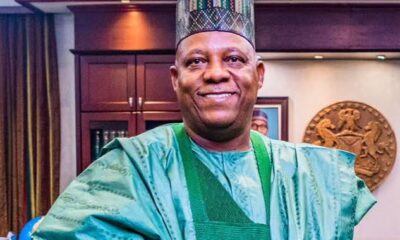

Nigeria’s future is very bright, we’ll overcome challenges, VP Shettima says
-


‘Pray for leaders to serve you diligently,’ President Tinubu tells Nigerians
-


Nigeria on the right path despite hardship, criticism— President Tinubu
-
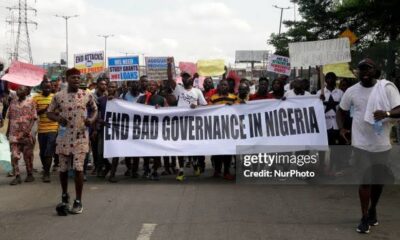

Nigeria: Police dismiss Amnesty Intl’s report on killing of protesters, demand apology
Strictly Personal
Let’s merge EAC and Igad, By Nuur Mohamud Sheekh
Published
4 weeks agoon
November 27, 2024
In an era of political and economic uncertainty, global crises and diminishing donor contributions, Africa’s regional economic communities (RECs) must reimagine their approach to regional integration.
The East African Community (EAC) and the Intergovernmental Authority on Development (Igad), two critical RECs in East Africa and the Horn of Africa have an unprecedented opportunity to join forces, leveraging their respective strengths to drive sustainable peace and development and advance regional economic integration and promote the African Continental Free Trade Area (AfCFTA).
Already, four of the eight Igad member states are also members of the EAC and, with Ethiopia and Sudan showing interest, the new unified bloc would be formidable.
Igad’s strength lies in regional peacemaking, preventive diplomacy, security, and resilience, especially in a region plagued by protracted conflicts, climate challenges, and humanitarian crises. The EAC, on the other hand, has made remarkable strides in economic integration, exemplified by its Customs Union, Common Market, and ongoing efforts toward a monetary union. Combining these comparative advantages would create a formidable entity capable of addressing complex challenges holistically.
Imagine a REC that pairs Igad’s conflict resolution strengths with the EAC’s diplomatic standing and robust economic framework. Member states of both are also contributing troops to peacekeeping missions. Such a fusion would streamline efforts to create a peaceful and economically prosperous region, addressing the root causes of instability while simultaneously promoting trade investment and regional cooperation.
These strengths will be harnessed to deal with inter-state tensions that we are currently witnessing, including between Ethiopia and Somalia over the Somaliland MoU, strained relations between Djibouti and Eritrea, and the continually deteriorating relations between Eritrea and Ethiopia.
The global economy experienced as a result of the COVID-19 pandemic, compounded by the Ukraine war and competing global crises, has strained donor countries and reduced financial contributions to multilateral organisations and African RECs. Member states, many of which are grappling with fiscal constraints, are increasingly unable to fill this gap, failing to make timely contributions, which is in turn affecting key mandate areas of Igad and EAC, and staff morale.
A merger between Igad and EAC would alleviate this financial pressure by eliminating redundancies. Shared administrative systems, integrated programmes, and a unified leadership structure would optimise resources, enabling the new REC to achieve more with less. Staff rationalisation, while sensitive, is a necessary step to ensure that limited funds are channelled toward impactful initiatives rather than duplicative overheads.
The African Union (AU) envisions a fully integrated Africa, with RECs serving as the building blocks of the AfCFTA. A unified EAC-Igad entity would become a powerhouse for regional integration, unlocking economies of scale and harmonising policies across a wider geographical and economic landscape.
This merger would enhance the implementation of the AfCFTA by creating a larger, more cohesive market that attracts investment, fosters innovation, and increases competitiveness. By aligning trade policies, infrastructure projects, and regulatory frameworks, the new REC could serve as a model for others, accelerating continental integration.
The road to integration is not without obstacles. Political will, divergent institutional mandates, and the complexity of harmonising systems pose significant challenges. However, these hurdles are surmountable through inclusive dialogue, strong leadership, and a phased approach to integration.
Member states must prioritise the long-term benefits of unity over short-term political considerations. Civil society, the private sector, the youth, and international partners also have a critical role to play in advocating for and supporting this transformative initiative.
The time for EAC and Igad to join forces is now. By merging into a single REC, they would pool their strengths, optimise resources, and position themselves as a driving force for regional and continental integration. In doing so, they would not only secure a prosperous future for their citizens and member states but also advance the broader vision of an integrated and thriving Africa.
As the world grapples with crises, Africa must look inward, embracing the power of unity to achieve its potential. A combined Igad-EAC is the bold step forward that the continent needs.
Nuur Mohamud Sheekh, a diplomatic and geopolitical analyst based in London, is a former spokesperson of the Igad Executive Secretary. X: @NuursViews
Strictly Personal
Budgets, budgeting and budget financing, By Sheriffdeen A. Tella, Ph.D.
Published
1 month agoon
November 20, 2024
The budget season is here again. It is an institutional and desirable annual ritual. Revenue collection and spending at the federal, State and local government levels must be authorised and guided by law. That is what budget is all about. A document containing the estimates of projected revenues from identified sources and the proposed expenditure for different sectors in the appropriate level of government. The last two weeks have seen the delivery of budget drafts to various Houses of Assembly and the promise that the federal government would present its draft budget to the National Assembly.
Do people still look forward to the budget presentation and the contents therein? I am not sure. Citizens have realised that these days, governments often spend money without reference to the approved budget. A governor can just wake up and direct that a police station be built in a location. With no allocation in the budget, the station will be completed in three months. The President can direct from his bathroom that 72 trailers of maize be distributed to the 36 states as palliatives. No budget provision, and no discussion by relevant committee or group.
We still operate with the military mentality. We operated too long under the military and of the five Presidents we have in this democracy, two of them were retired military Heads of State. Between them, they spent 16 years of 25 years of democratic governance. Hopefully, we are done with them physically but not mentally. Most present governors grew up largely under military regimes with the command system. That is why some see themselves as emperor and act accordingly. Their direct staff and commissioners are “Yes” men and women. There is need for disorientation.
The importance of budget in the art of governance cannot be overemphasized. It is one of the major functions of the legislature because without the consideration and authorisation of spending of funds by this arm of government, the executive has no power to start spending money. There is what we refer to as a budget cycle or stages. The budget drafting stage within the purview of the executive arm is the first stage and, followed by the authorisation stage where the legislature discusses, evaluates and tinkers with the draft for approval before presenting it to the President for his signature.
Thereafter, the budget enters the execution phase or cycle where programmes and projects are executed by the executive arm with the legislature carrying out oversight functions. Finally, we enter the auditing phase when the federal and State Auditors verify and report on the execution of the budgets. The report would normally be submitted to the Legislature. Many Auditor Generals have fallen victim at this stage for daring to query the executives on some aspects of the execution in their reports.
A new budget should contain the objectives and achievements of the preceding budget in the introduction as the foundation for the budget. More appropriately, a current budget derives its strength from a medium-term framework which also derives its strength from a national Development Plan or a State Plan. An approved National Plan does not exist currently, although the Plan launched by the Muhammadu Buhari administration is in the cooler. President Tinubu, who is acclaimed to be the architect of the Lagos State long-term Plan seems curiously, disillusioned with a national Plan.
Some States like Oyo and Kaduna, have long-term Plans that serve as the source of their annual budgets. Economists and policymakers see development plans as instruments of salvation for developing countries. Mike Obadan, the former Director General of the moribund Nigeria Centre for Economic and Management Administration, opined that a Plan in a developing country serves as an instrument to eradicate poverty, achieve high rates of economic growth and promote economic and social development.
The Nigerian development plans were on course until the adoption of the World Bank/IMF-inspired Structural Adjustment Programme in 1986 when the country and others that adopted the programme were forced to abandon such plan for short-term stabilisation policies in the name of a rolling plan. We have been rolling in the mud since that time. One is not surprised that the Tinubu administration is not looking at the Buhari Development Plan since the government is World Bank/IMF compliant. It was in the news last week that our President is an American asset and by extension, Nigeria’s policies must be defined by America which controls the Bretton Woods institutions.
A national Plan allows the citizens to monitor quantitatively, the projects and programmes being executed or to be executed by the government through the budgeting procedure. It is part of the definitive measures of transparency and accountability which most Nigerian governments do not cherish. So, you cannot pin your government down to anything.
Budgets these days hardly contain budget performance in terms of revenue, expenditure and other achievements like several schools, hospitals, small-scale enterprises, etc, that the government got involved in successfully and partially. These are the foundation for a new budget like items brought forward in accounting documents. The new budget should state the new reforms or transformations that would be taking place. Reforms like shifting from dominance of recurrent expenditure to capital expenditure; moving from the provision of basic needs programmes to industrialisation, and from reliance on foreign loans to dependence on domestic fund mobilisation for executing the budget.
That brings us to the issue of budget deficit and borrowing. When an economy is in recession, expansionary fiscal policy is recommended. That is, the government will need to spend more than it receives to pump prime the economy. If this is taken, Nigeria has always had a deficit budget, implying that we are always in economic recession. The fact is that even when we had a surplus in our balance of payment that made it possible to pay off our debts, we still had a deficit budget. We are so used to borrowing at the national level that stopping it will look like the collapse of the Nigerian state. The States have also followed the trend. Ordinarily, since States are largely dependent on the federal government for funds, they should promote balanced budget.
The States are like a schoolboy who depends on his parents for school fees and feeding allowance but goes about borrowing from classmates. Definitely, it is the parents that will surely pay the debt. The debt forgiveness mentality plays a major role in the process. Having enjoyed debt forgiveness in the past, the federal government is always in the credit market and does not caution the State governments in participating in the market. Our Presidents don’t feel ashamed when they are begging for debt forgiveness in international forum where issues on global development are being discussed. Not less than twice I have watched the countenance of some Presidents, even from Africa, while they looked at our president with disdain when issues of debt forgiveness for African countries was raised.
In most cases, the government, both at the federal and state cannot show the product of loans, except those lent by institutions like the World Bank or African Development Bank for specific projects which are monitored by the lending institutions. In other cases, the loans are stolen and transferred abroad while we are paying the loans. In some other cases, the loans are diverted to projects other than what the proposal stated. There was a case of loans obtained based on establishing an international car park in the border of the State but diverted to finance the election of a politician in the State. The politician eventually lost the election but the citizens of the State have to be taxed to pay the loan. Somebody as “Nigeria we hail thee”.
Transformation in budgeting should commence subsequently at the State and federal level. Now that local government will enjoy some financial autonomy and therefore budgeting process, they should be legally barred from contracting foreign loans. They have no business participating in the market. They should promote balanced budget where proposed expenditures must equal the expected revenues from federal and internal sources. The State government that cannot mobilise, from records, up to 40 percent of its total budget from IGR should not be supported to contract foreign loans. The States should engage in a balanced budget. The federal government budget should shift away from huge allocations to recurrent expenditure towards capital expenditure for capital formation and within the context of a welfarist state.
Sheriffdeen A. Tella, Ph.D.
EDITOR’S PICK
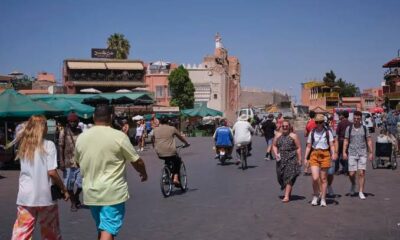

Moroccan tourist arrivals hit record-breaking 16 million
The year 2024 has seen Morocco celebrate a record-breaking 16 million tourist arrivals, surpassing the 12 million mark set in...


Safaricom Ethiopia launches 4G network in Gambella
Ethiopia’s second largest telecom provider, Safaricom Telecommunications Ethiopia P.L.C., has announced the official launching of its 4G network services in...


Dumping England for Nigeria the best decision of my life— Ademola Lookman
Current African Men’s Footballer of the Year, Ademola Lookman, has attributed his rise in the football echelon to his decision...


Zambian NGOs rate President Hichilema’s reforms as not far-reaching
Two Non-Governmental Organizations (NGOs) in Zambia, the Transparency International-Zambia (TI-Z) and the Continental Leadership Research Institute (CLRI), have rated the...
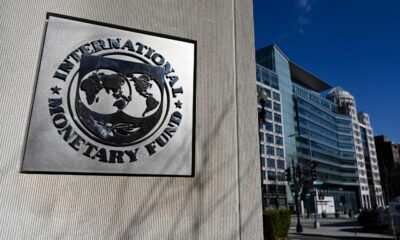

IMF, Egypt reach agreement for fourth review of Egypt’s $1.2 billion loan request
Egypt and the International Monetary Fund (IMF) have reached a staff-level agreement over the fourth review of the Extended Fund...


Libya’s eastern govt accepts petrol subsidy elimination
In a recent statement, the eastern government of Libya claimed it had reached a consensus on a plan to eliminate...


World Bank suspends loan fees for impoverished countries
To lower borrowing costs for vulnerable nations, the World Bank has announced the elimination of several loan fees. The action...
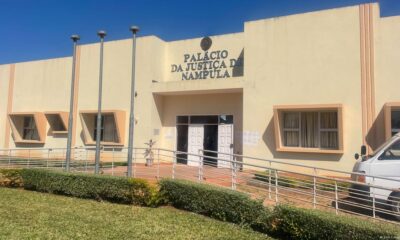

Mozambique’s top court affirms governing party’s victory in recent election
The highest court in Mozambique affirmed Monday that the incumbent Frelimo party won the October election, sparking widespread demonstrations from...


Nigeria resumes mining in Zamfara state
According to the mining minister, Nigeria has removed a five-year restriction on mining exploration in the northwest state of Zamfara,...


Russian Foreign Ministry claims cargo ship sinks in Mediterranean following explosion
The Russian Foreign Ministry reported Tuesday that two crew members are still unaccounted for after an explosion tore through the...
Trending
-

 Politics1 day ago
Politics1 day agoMozambique’s top court affirms governing party’s victory in recent election
-

 VenturesNow1 day ago
VenturesNow1 day agoLibya’s eastern govt accepts petrol subsidy elimination
-

 Metro2 days ago
Metro2 days agoZambian drug agency declares ex-President Lungu’s daughter wanted
-

 VenturesNow1 day ago
VenturesNow1 day agoNigeria resumes mining in Zamfara state


